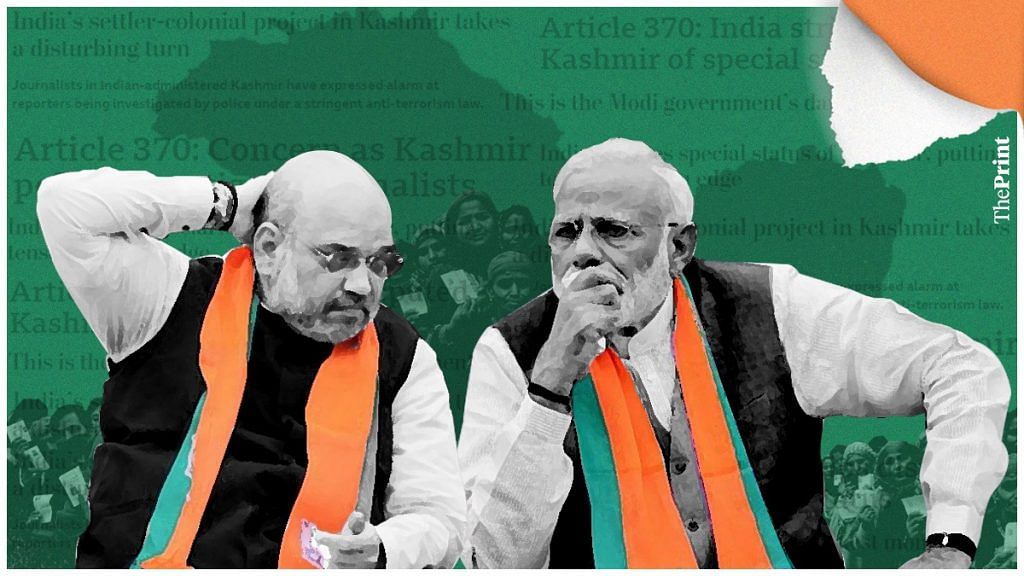A fresh commitment to the ceasefire agreement puts pressure on Islamabad to respect and uphold this understanding with New Delhi, but on our side of the border, for the pact to succeed, a great deal of responsibility also lies with the ruling Bharatiya Janata Party leaders. Their refrain from resorting to belligerent rhetoric against Pakistan in the election season could go a long way in promoting peace.
‘Pakistan bashing’ ahead of polls in a bid to whip up communal and nationalistic frenzy is the favourite trick of the BJP leaders, including Prime Minister Narendra Modi and Home Minister Amit Shah —. A selling point that finds takers across states and social divides.
However, diplomatic and strategic relations cannot be sacrificed for domestic politics and election thrills. But the BJP seems adept at doing that — whether it is by coupling Bangladesh with CAA-NRC or its leaders passing facetious comments like the one by Tripura Chief Minister Biplab Deb that upset Nepal.
With the political season now heating up and crucial states like West Bengal and Assam going to polls this month, and Uttar Pradesh early next year, the temptation among the BJP leaders and workers to rake up the ‘enemy’ narrative would be strong. It is this urge, however, that the party has to resist and the onus is on Modi to lead by example and keep his flock in check.
Also read: Beyond Hindutva and nationalism, one element drives Modi’s success — last-mile delivery
Domestic politics and diplomacy
Aggression, othering, flaunting machismo and furthering the 56-inch-chest is the BJP’s brand of politics. This, in fact, starts right from the top and percolates down to the party cadre and workers. How emotive an issue is, how well it lends itself to high-pitched rhetoric, and how it can help galvanise voters is what matters the most, political correctness and diplomatic niceties notwithstanding.
Take for instance, then BJP president and now Home Minister Amit Shah’s constant pitch raising on CAA and coupling it with the National Register of Citizens (NRC) in the run-up to the 2019 Lok Sabha polls. Shah didn’t refrain from referring to Bangladeshi ‘infiltrators’ as ‘termites‘, whom he wanted to throw into the Bay of Bengal. The shrill semantics got to Bangladesh, a largely friendly neighbour, with Dhaka even demanding a written assurance from the Modi government that it won’t send Bangladeshi immigrants back. The domestic politics ended up straining ties with the neighbour.
Shah didn’t stop there.
In August 2019, he roared in Parliament saying India will take back Aksai Chin. What followed was Chinese aggression at the Line of Actual Control (LAC) and clashes in Galwan Valley that saw 20 Indian soldiers killed in action.
When it comes from the top, it usually trickles down.
Tripura CM Biplab Deb stirred a row when he said Amit Shah has plans to set up BJP governments in Nepal and Sri Lanka. His remarks may have been in jest and more of exaggerated chest-thumping, but they did invite a formal denunciation from Nepal. This diplomatic turbulence with a country with which we share a highly porous border was avoidable, especially at a time when New Delhi-Kathmandu ties have been under duress.
Pakistan, meanwhile, tops the list when it comes to the BJP’s fondness for displaying over-the-top machismo and belligerence and fits the bill perfectly — of being the punching bag that moves voters.
Also read: Rahul Gandhi again misses the bus in Assam. His anti-CAA pitch too little, too late
The seductiveness of Pakistan
Pakistan is an Islamic country, an aggressor and ‘enemy-in-chief’ since 1947 — an alluring blend for the BJP to attack it frequently before the Indian public, more than anything else, as I have argued in the past.
The P-word finds a mention before every crucial election, with the BJP’s women and men refusing to let go of this weapon. ‘Go to Pakistan‘ has actually become a curse-phrase for the BJP, to banish those it doesn’t like.
In the run-up to the 2017 Uttar Pradesh polls, PM Modi blamed Pakistan for a train derailment in Kanpur that killed 150 people. Ahead of the Gujarat election, Modi made an audacious claim that Pakistan was trying to influence the verdict and that some ‘secret meeting’ had taken place between former Prime Minister Manmohan Singh and Pakistani officials.
As he campaigned for the Delhi assembly election last year, Uttar Pradesh Chief Minister Yogi Adityanath claimed his Delhi counterpart Arvind Kejriwal had the backing of Pakistan.
These, of course, are just a handful of examples in the BJP’s massive doctrine of pre-election Pakistan blaming. Do recall how the Lok Sabha polls were preceded by an overwhelming reference to Balakot-Pulwama, how horrid Pakistan is and how only Modi can tackle it.
Essentially, Pakistan is a safety net for the BJP. The party may talk about welfare, development, ‘Sabka Saath, Sabka Vikas’ extensively, but adds a very generous dose of bashing the neighbour in its poll discourse.
The approach, however, will have to change now.
You can’t commit to maintaining peace along the border on one hand, and on the other use Islamabad as a punching bag to further domestic politics. India must live up to its side of the bargain and not whip up unnecessary paranoia around Islamabad. PM Modi has to play the statesman here and ensure his ‘soldiers’ don’t go down that route this election season.
If there is a violation of this peace understanding, let it be from Pakistan’s side. To have India instigate it due to petty domestic politics will be a blot on the country, and on the ruling party and its top leadership’s ability to draw the line. Old habits die hard, the cliché goes, but when the outcome is potentially dangerous and can re-start another phase of toxicity, the habits must not only die, but be buried somewhere deep inside.
Views are personal.
